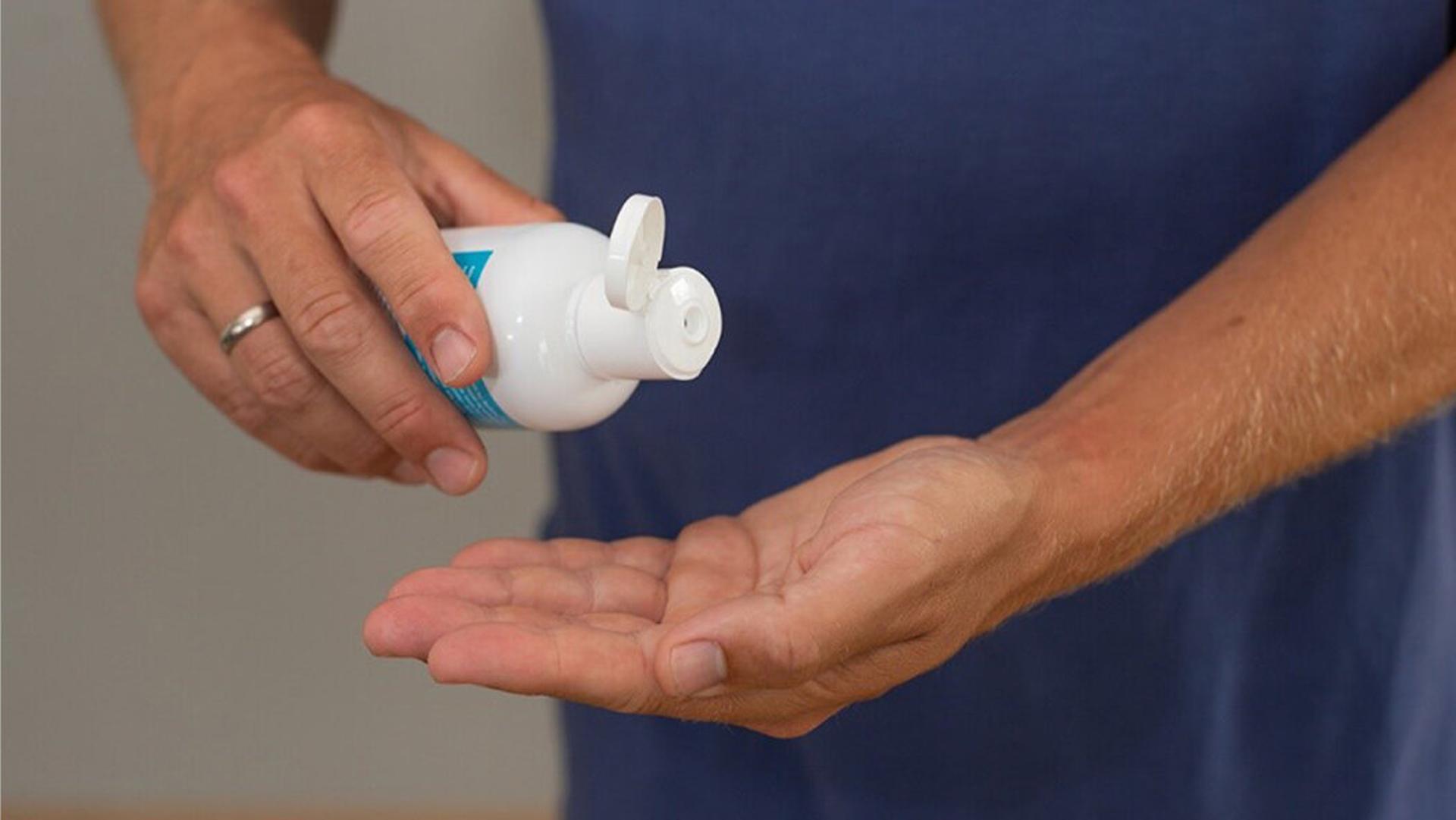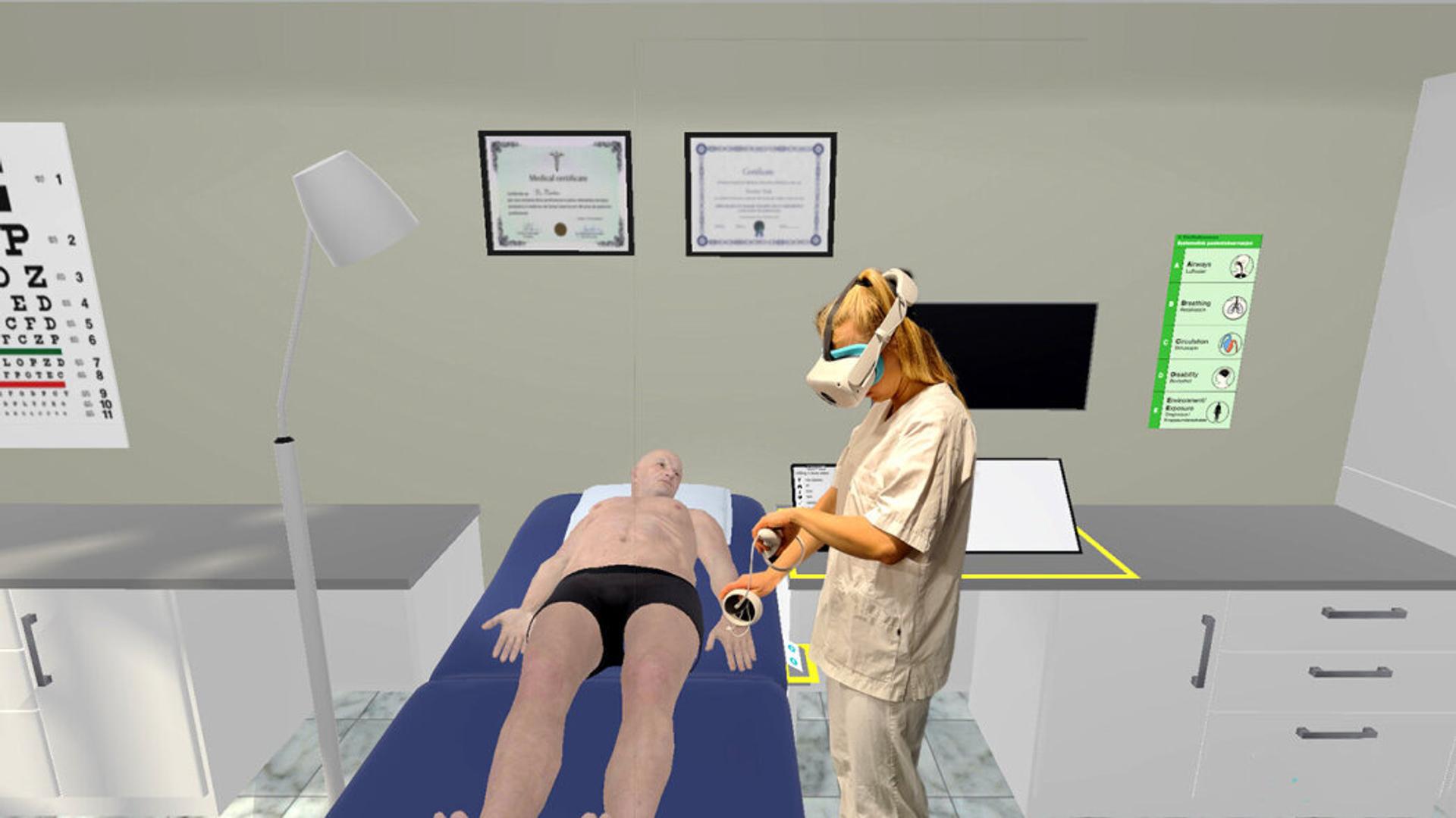
Norway’s health and life science research births a competitive industry with life-saving outcomes
Published 12 June 2024 (updated 14 Nov 2025) · 6 min read
Within health and life science, Norway has made technological breakthroughs in several areas that have advanced the field of medicine.
But the country is perhaps best known for its world-class research and unique health data. Now it’s time to build a competitive industry.
“Research is our gold,” states Christine Wergeland Sørbye, CEO of Oslo Science City. “Our next step is to turn scientific knowledge and precommercial ideas into globally competitive commercial products and services.”
Norway is well on its way.
Norwegian government is going all in
In Norway, the government aims to build a strong, thriving health and life science industry. The industry has also been named one of five national export initiatives under the government reform to increase Norwegian exports by 50 per cent by 2030 (excluding oil and gas).
The government has decided to invest EUR 6 billion in life science infrastructure and a new university hospital in Oslo Science City. In addition to funding, success will require public-private partnerships, industrial partnerships with other countries, and prioritising areas in which Norway excels. The details are laid out in the government’s Roadmap for the health industry published in autumn 2023.
Norway’s areas of expertise
Norway’s major strengths lie in biopharma, medtech and digital health. Here the country has cutting-edge research, vibrant incubators, and innovative startups and scaleups ready to build tomorrow’s health and life science industry.
Notably, Norway is a pioneer in medical oncology, with groundbreaking research in cancer vaccination, diagnosis, prevention and treatment, including immuno-oncology.
In addition, Norway stands out globally for its work in AI, ultrasound and other medical imaging as well as radiopharmaceuticals, antibodies, cell and gene therapy, nanotechnology, and in vivo and in vitro diagnostics.
Another strength is patient-centric care, which emphasises precision medicine as well as patient involvement and participation. Moreover, digital health solutions abound, enabling diagnosis, prevention and treatment both in a clinical setting and at home.
Currently, the health and life science industry in Norway contributes to Norwegian exports with roughly EUR 2-3 billion in export value, with GE HealthCare, Bayer and Thermo Fisher as the leading contributors. The potential for future growth is significant.

Norwegian society provides a rock-solid foundation
All this excellent work is firmly grounded in competitive advantages that arise from the way Norwegians organise their society. First and foremost, Norway has an outstanding, publicly funded universal healthcare system. The country spends 8.1 per cent of its GDP on health care, placing it among the top healthcare spenders in the world.
The system delivers effective, high-quality medical care, and 80 per cent of Norwegians are satisfied with the availability of the care they receive. In terms of health system performance, Norway scores above the OECD average in areas such as quality of care, access to care and health system resources.
Moreover, Norway is one of the world’s most highly digitalised countries, with extensive experience in digitalising the health and care sector and innovating medical and welfare technologies.
In terms of sustainability, Norway’s clean energy, abundant clean water, advanced technology, and expertise in circular processes and recycling ensure reliable, sustainable production of high-quality medical products and components.
Collaboration in an ecosystem of innovation
Norway’s superpower is collaboration. Nowhere is this more evident than in Oslo Science City, Norway’s first innovation district, which hosts 8 000 researchers, 40 000 students, and 300 startup companies. Health and life science is one of four priority growth areas in the district.
Located here are the University of Oslo and Oslo University Hospital, for which the new Life Science Building is being built, together with SINTEF and other leading research institutes. Radiumhospitalet is being further developed as a specialised cancer hospital that closely integrates research and patient care. The new clinical building will be opened to patients in autumn 2024, and a proton therapy centre is scheduled to open in 2025.
Based on leading research and healthcare resources, we are developing strategic partnerships with national and international pharma companies. AstraZeneca, Thermo Fisher, Novo Nordisk, Bayer, Abbvie, Novartis, Roche and GSK all joined as partners of this year’ s landmark Oslo Science City Arena conference – Norway Life Science 2024.
“We have high-level contact with CEOs and political leaders. Our strong commitment sends an important signal to global companies.”
Christine Wergeland Sørbye
CEO of Oslo Science City
Promising clinical research hub
In Oslo, Norway’s largest medical research environment conducts more than two-thirds of the country’s medical research, including clinical trials with world-class infrastructure. A notable example is the IMPRESS-Norway nationwide clinical trial for precision cancer medicine.
“Ongoing collaboration is essential to our study,” says Åslaug Helland, the principal investigator and co-founder of IMPRESS-Norway. “We work with 20 different pharma companies, including Eli Lilly, Incyte, Novartis and Roche. This allows us to bring new drugs into the pipeline and try out new diagnostic tools.”
In addition to IMPRESS, initiatives such as InPReD on precision diagnostics infrastructure and NorTrials, a collaboration to increase industry-funded clinical trials in Norway, provide cutting-edge infrastructure and processes, making Norway an appealing destination for clinical trials. Eli Lilly, for instance, recently selected Norway as the site for its groundbreaking study SUNRAY-01 on precision medicine for non-small cell lung cancer.
Moreover, the Norwegian Cancer Precision Medicine Consortium (CONNECT) is a major public-private consortium that promotes the implementation of precision cancer medicine.
“CONNECT is about going beyond the clinical trial, developing a culture for public-private collaboration. We aim to get new precision cancer drugs to the patients more quickly,” states Wenche Gerhardsen, Head of Communications at Oslo Cancer Cluster, coordinator of CONNECT.

Health and life science powerhouses throughout Norway
Norway has strong research hubs outside the capital city as well. In Central Norway lies Trondheim, home of SINTEF, one of Europe’s largest independent research organisations, and the Norwegian University of Science and Technology (NTNU). Together with St. Olavs Hospital, NTNU and SINTEF collaborate in various ways.
Moreover, NTNU hosts the world-renowned Kavli Institute for Systems Neuroscience, which is co-directed by Edvard Moser and May-Britt Moser, recipients of the Nobel Prize in Physiology or Medicine in 2014.
Meanwhile, in Western Norway, Haukeland University Hospital, Bergen, will begin treating cancer patients at its proton therapy centre in 2024. Proton therapy is a type of radiation therapy that causes less treatment-related toxicity than standard X-ray therapy. The sister centre is located at Radiumhospitalet in Oslo.
In North Norway, activities centre around UiT-The Arctic University of Norway and University Hospital of North Norway, with support from Norinnova.
World-class health data
Norway’s outstanding health data has been collected systematically over decades and organised into registries. Biobank Norway, one of the world’s largest, covers both consented population-based and disease-specific clinical biobanks. It also enables access to unparalleled longitudinal health data, making it a unique asset for global research and innovation projects within life science, disease prevention and treatment.
“Health data is a valuable asset in Norway’s burgeoning health industry. Data is stored at a single location – the Norwegian Institute for Public Health – where the registries are made accessible for researchers,” explains Gerhardsen.
Of the 69 health registries, the Cancer Registry of Norway and the Norwegian Cardiovascular Disease Registry are globally recognised for their exceptionally high quality. Both contain detailed and longitudinal data regarding clinical endpoints, diagnosis, and treatment within cancer and cardiovascular diseases. The Cancer Registry is one of the oldest national registries in the world, established in 1951.
Norwegian values support health industry growth
Norway is consistently recognised as one of the world’s most resilient countries, exemplifying stability and adaptability in the face of global challenges. Its workforce is well-educated and highly skilled, and the industrial environment is trustworthy, collaborative and egalitarian. In addition, gender equality, an inclusive culture and flat hierarchies are standard in working life.
“Our partnership model is unique. It has to do with trust-based relationships built over time. Now we want to welcome more global players into fruitful collaborations,” concludes Christine Wergeland Sørbye of Oslo Science City.
 EpiGuard’s medical isolation and transportation system provides optimal safetyThe EpiShuttle is a reusable isolation unit for transport of highly infectious or vulnerable patients. It protects both patients and healthcare professionals, while making it possible to provide medical treatment.
EpiGuard’s medical isolation and transportation system provides optimal safetyThe EpiShuttle is a reusable isolation unit for transport of highly infectious or vulnerable patients. It protects both patients and healthcare professionals, while making it possible to provide medical treatment. SafeDes+ hand disinfectant removes microbes with a skin-friendly formulaSafeDes+ hand disinfectant is specially developed for irritated, compromised and eczematous skin. It fights microbes with non-toxic, alcohol-free technology. “Our disinfectant is highly effective and clinically documented to be skin friendly on both healthy and compromised skin. By using our product, people with damaged skin can disinfect their hands effectively without pain or irritation,” says Geir Almås, CEO of SoftOx Solutions.
SafeDes+ hand disinfectant removes microbes with a skin-friendly formulaSafeDes+ hand disinfectant is specially developed for irritated, compromised and eczematous skin. It fights microbes with non-toxic, alcohol-free technology. “Our disinfectant is highly effective and clinically documented to be skin friendly on both healthy and compromised skin. By using our product, people with damaged skin can disinfect their hands effectively without pain or irritation,” says Geir Almås, CEO of SoftOx Solutions. Connect the Dots could save lives with virtual medical trainingConnect the Dots delivers a virtual reality (VR) tool to the healthcare sector, increasing the quality and availability of medical procedure training. “We use VR to prepare health workers for real-life events where they must act quickly to save a patient’s life,” says Siva Snarby, CEO and co-founder of Connect the Dots (CTD).
Connect the Dots could save lives with virtual medical trainingConnect the Dots delivers a virtual reality (VR) tool to the healthcare sector, increasing the quality and availability of medical procedure training. “We use VR to prepare health workers for real-life events where they must act quickly to save a patient’s life,” says Siva Snarby, CEO and co-founder of Connect the Dots (CTD). Bulbitech revolutionises eye and neurological disease diagnostics and careBulbitech delivers AI-powered eye-tracking technology that screens for ophthalmological and neurological disorders. “Our solution enables doctors to diagnose certain diseases at a very early stage, which can significantly improve the patient’s prognosis,” states Dennis Hens, CCO at Bulbitech.
Bulbitech revolutionises eye and neurological disease diagnostics and careBulbitech delivers AI-powered eye-tracking technology that screens for ophthalmological and neurological disorders. “Our solution enables doctors to diagnose certain diseases at a very early stage, which can significantly improve the patient’s prognosis,” states Dennis Hens, CCO at Bulbitech.
